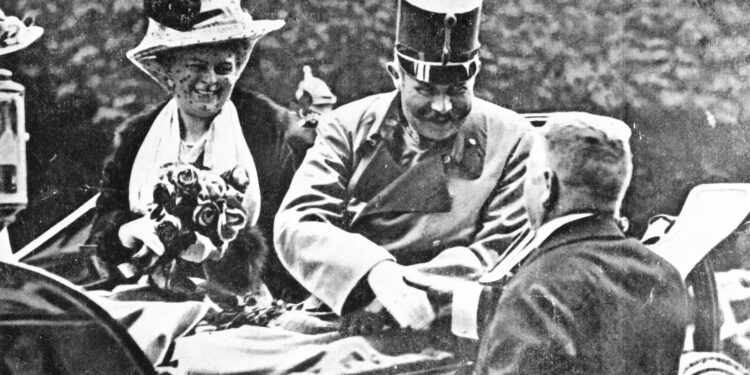The Assassination of Archduke Franz Ferdinand: A Catalyst for World War I
The assassination of Archduke Franz Ferdinand on June 28, 1914, in Sarajevo, Bosnia, triggered a chain of events that would lead to the outbreak of World War I. This pivotal event in history not only claimed the life of the heir to the Austro-Hungarian Empire but also ignited tensions among European powers and ultimately plunged the world into a devastating conflict.
Who was Archduke Franz Ferdinand? Archduke Franz Ferdinand was born on December 18, 1863, in Graz, Austria. As the nephew of Emperor Franz Joseph I, he was the heir presumptive to the Austro-Hungarian Empire. Ferdinand was known for his liberal views and desire for political reform, aiming to grant greater autonomy to the empire’s diverse ethnic groups. His assassination would abruptly end his aspirations for change and set off a chain reaction of geopolitical consequences.
The Assassination: In Sarajevo, a young Bosnian Serb nationalist named Gavrilo Princip assassinated Archduke Franz Ferdinand and his wife, Sophie. Princip, a member of the Black Hand secret society, viewed the archduke as a symbol of Austrian oppression. Seizing the opportunity as the imperial couple traveled in an open car, Princip fired his pistol, fatally striking both Ferdinand and Sophie. This shocking event sent shockwaves throughout Europe, exposing deep-seated ethnic and political tensions in the region.
Consequences and Outbreak of War: The assassination had far-reaching consequences. Austria-Hungary, blaming Serbia for the attack, issued an ultimatum demanding the surrender of Serbian sovereignty. Serbia’s partial compliance led Austria-Hungary to declare war on July 28, 1914. Complex alliances between nations then came into play, rapidly escalating the conflict. Russia, an ally of Serbia, mobilized its forces, prompting Germany to declare war on Russia and its ally, France. Germany’s invasion of Belgium to reach France further intensified the situation, leading Britain to enter the war.
Ultimately, the assassination of Archduke Franz Ferdinand and its aftermath led to the outbreak of World War I. The war lasted for four devastating years, claiming millions of lives and reshaping the political and social landscape of Europe. It marked the end of empires, ignited revolutions, and set the stage for future global conflicts. The event remains one of the most significant turning points in modern history.
newshub



Recent Comments